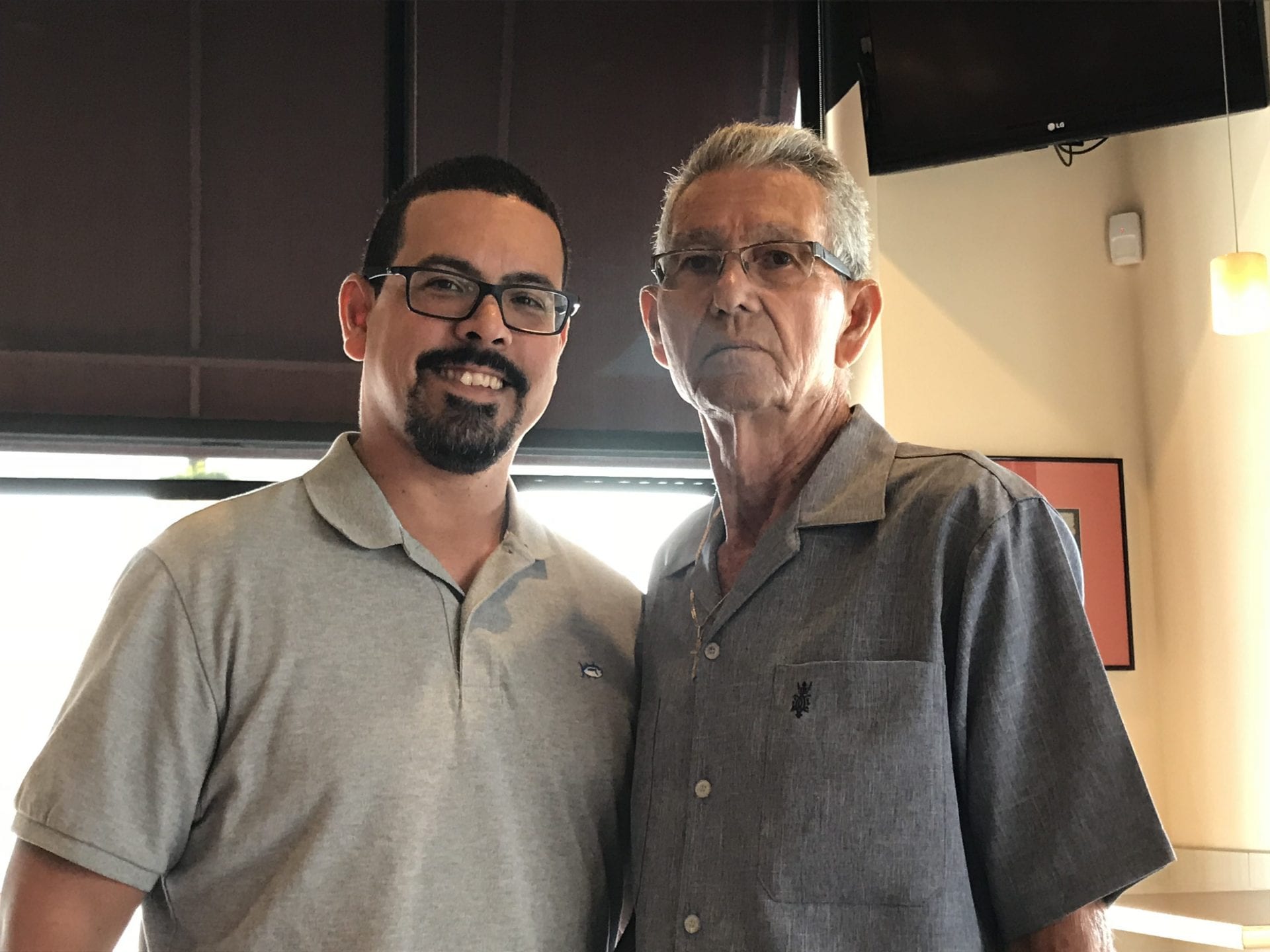Reflecting on Hurricane Maria One Year Later

By: Dr. Fernando Rivera
Associate Professor of Sociology
Director, Puerto Rico Research Hub
I clearly remember speaking on the phone with my father the day before Hurricane Maria struck Puerto Rico. I felt reassured knowing he had all of the essentials to withstand the impact of the storm, and I was confident we would speak in a couple of days after the hurricane.
As a disaster researcher I am familiar with the process of emergency preparedness, response and recovery. But even with all of this knowledge I was not prepared to confront what transpired after Hurricane Maria: A total loss of communication about the wellbeing of family and friends in the island and the realization that Florida, particularly Central Florida, was to become a central place of recovery miles away from Puerto Rico.
Days after the hurricane struck, the lack of information and the constant images of the destruction Maria caused permeated the media, and many Puerto Ricans in Central Florida were beginning to realize the severity and magnitude of the damage done by Maria. Many groups in the community united and started to collect supplies to send to the island. At that same time, many in Puerto Rico started to come to Central Florida to seek refuge from the aftermath of the hurricane.
Florida is understandably a preferred place for Puerto Ricans to come as it offers job opportunities and access to education. For several years there has been a consistent growth of the Puerto Rican population in Florida, surpassing the one million mark in 2014. For many Puerto Ricans already living in Central Florida, Hurricane Maria opened their eyes to see the number of Puerto Ricans who were already living in the community. For others, it also served as a reminder that Puerto Rico is a territory of the United States and Puerto Ricans are U.S. citizens.
It took three weeks before I could finally communicate with my dad. My dad usually does not voluntarily like to visit us in the States, so when he insisted on leaving the island I knew things were really bad. He, along with many others who had the resources to escape the conditions on the island, did leave. My household became a place of refuge for family members for extended periods of time. In a sense, Central Florida and many other communities through the United States became a central point of response and recovery from Maria.
It also highlighted the unique distinction of Puerto Rico having more Puerto Ricans living in the continental United States than in Puerto Rico, 5.5 million to 3.3 million respectively. This reality also sparked discussion around the importance of the Puerto Ricans living in the continental U.S. and their connection to the future of the island.
In my many travels to the island after Maria — visiting with fellow faculty members, family, friends and community members — I was constantly reminded that the best thing I could do for them and the island was to vote and bring awareness to the situation in Puerto Rico. For a period of time, Hurricane Maria united Puerto Ricans from the island and stateside. That is a phenomenon that is usually experienced by communities after the immediate aftermath of any disaster situation. Yet, that unity and cohesion tends to dissipate after things get back to normal. As time has passed, ideological, political, and social differences have started to fracture that initial unity of the Puerto Rican community. This is an unfortunate dilemma as — now more than ever — the Puerto Rican community needs to unite to encounter many of the social and economic issues the island is facing and worsened by the passage of Hurricane Maria.
A year after Hurricane María, Puerto Rico is still facing many issues including its financial recovery, weakened infrastructure, population loss, massive cuts to public education and other safety net programs. Yet, the resilience and resolve of Puerto Ricans after Maria is nothing short of commendable.
Furthermore, the help given by the Central Florida community was also remarkable. It is also time to recognize that if the financial and economic conditions of Puerto Rico do not improve, Florida will continue to be a destination for Puerto Ricans. In response to these demographic trends, the University of Central Florida created the Puerto Rico Research Hub with the purpose of investigating, disseminating knowledge and promoting creative solutions to pressing issues affecting the Puerto Rican population, its diaspora and surrounding communities. It is my hope that initiatives similar to the Puerto Rico Research Hub in the Central Florida community will continue to foster and provide the resources necessary for Puerto Ricans to integrate and participate fully in society.
Click here for full post.
